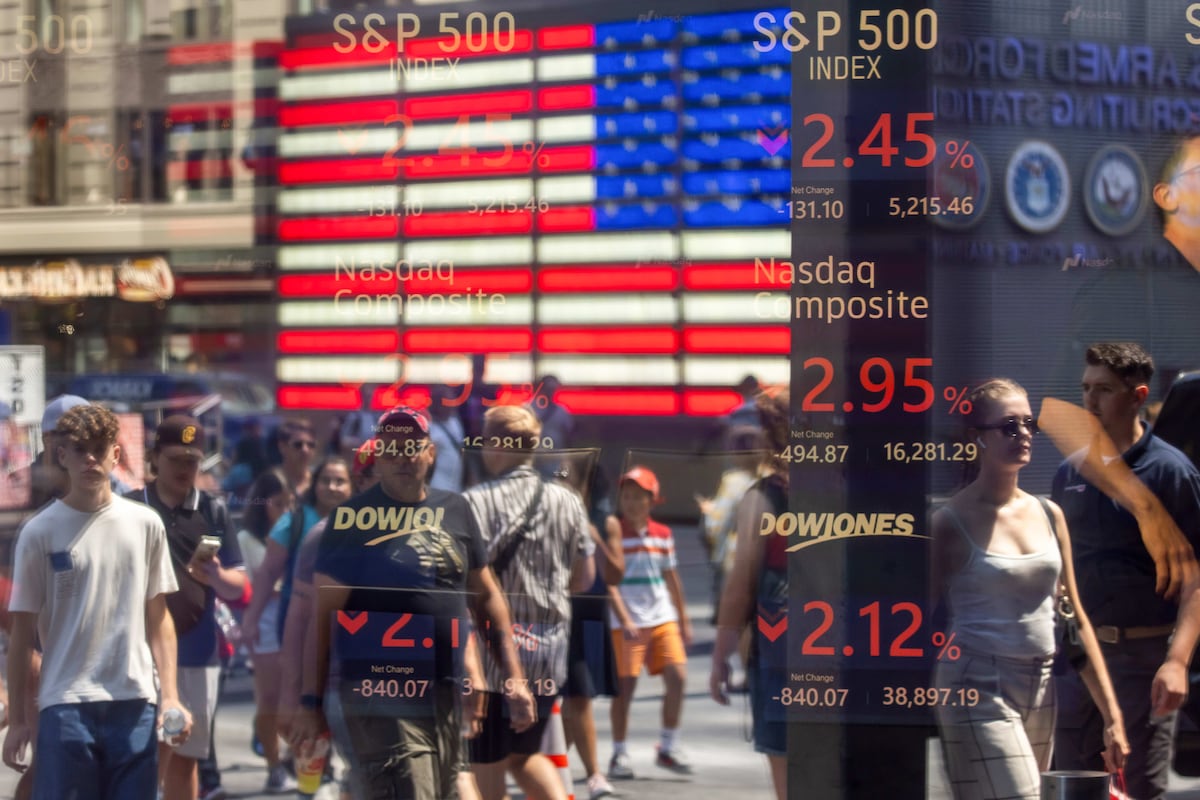Interest rates, dollar, stock markets and gold awaiting US election results | Business

“This is the best work of government. You come into the office once a month and say, “Let’s flip a coin.” And everyone talks about you as if you are God.” This is precisely the idea that the Republican candidate for the US elections, Donald Trump, has regarding the position of chairman of the Federal Reserve System. Given these remarks at the Economic Club of Chicago, it is not surprising that there are concerns that if the Republican wins the election, he will try to undermine the independence of the central bank.
This independence is protected by law, and the president cannot just end it. Most Republicans and Democrats in Congress understand that this is beneficial, and incumbent President Jerome Powell has shown evidence that he is unimpressed by political pressure. The problem is that Powell’s term (who was appointed by Trump himself in 2018 and then renewed by Joe Biden for a second term) as President ends on May 15, 2026, and as Advisor on January 31, 2028.
As if he knows anything about monetary policy, Trump thinks it makes sense for the president to tell the head of the central bank how interest rates should move. And he may appoint someone more receptive to this position than Powell. “I don’t think I should be allowed to order it, but I think I have the right to comment on whether interest rates should go up or down,” he said in Chicago.
The next Fed meeting will be held immediately after the elections, on November 6 and 7. It may not even be known then who won them, but the market is suggesting that after a 0.50 point decline in September there will be another 0.25 point decline, likely followed by another similar one on December 18th.
The short-term impact of the threat to the Fed’s independence appears limited in the short term, given that Powell’s replacement is more than two and a half years away. According to Greg Mayer of Allianz Global Investors, if this happens, the impact would be as follows: “For Treasuries, we believe the impact may be felt more in short-term rates than in long-term rates due to persistent concerns about inflation. A tighter spread between US and global yields could weaken the US dollar, while equities and commodities could benefit from the prospect of monetary stimulus.”
In reality, what could impact the dollar the most is the introduction of sweeping tariffs. This would strengthen the dollar in two ways: by adjusting parities to adjust to trade conditions and by higher rates to combat the tariff effect of tariffs. Analysts believe that if Trump wins, the dollar will rise (it is already rising if he wins); If Harris wins, there will be no significant changes, but perhaps the dollar will give up its recent gains.
Things are more complicated with the stock market. “The strong outlook for corporate earnings and further easing of monetary policy point to further gains in equities, regardless of the election outcome,” Goldman Sachs concluded. “The resolution of post-election political uncertainty should provide a near-term tailwind for equities, consistent with historical pattern. However, the outcome of the election is likely to lead to rotation in the stock market.”
In principle, the lower corporate tax rates that Trump is advocating against Harris would encourage contributions. Because of tariffs (and their impact on the dollar), a Trump victory would help companies that rely more on the domestic market, while a Harris victory would support companies with more international exposure. By sector, oil companies and banks are seen as winners under Trump, while renewables and infrastructure are seen as winners under Harris.
For now, geopolitical uncertainty, including uncertainty about the outcome, is driving gold higher. The possible exchange rate adjustment caused by tariffs proposed by Trump and the risk of high deficits for both candidates indicate that the precious metal will be the winner in almost all scenarios.